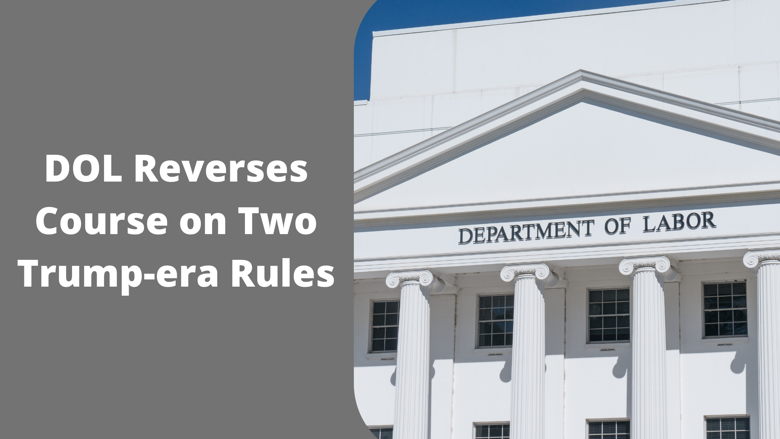DOL Delays FLSA Tip Regulations and Reverses Gig Worker Rule

The Department of Labor has changed course on two FLSA Regulations set to go into affect in May.
The DOL released its final ruling that delays the effective date of three portions of its "Tip Regulations Under the Fair Labor Standards Act (FLSA)." until December 31, 2021. They also announced that they are blocking a Trump-era gig worker regulation, intended to make it easier to classify gig (and other) workers as independent contractors.
Time to Review FLSA Tip Regulations
The delay is meant to give the DOL more time to complete a separate rulemaking (published March 25, 2021) proposing to withdraw and re-propose two portions of the 2020 final tip rule that addressed the assessment of civil money penalties (CMPs); and
The delay will also give the DOL more time to conduct another rulemaking to potentially revise the part of the 2020 final tip rule addressing the application of the FLSA’s tip credit provision to tipped employees who perform both tipped and non-tipped duties.
In its March 25, 2021 partial delay notice, the DOL stated that, in accordance with its review of questions of law, policy, and fact raised by the 2020 final tip rule, most of the 2020 tip rule will go into effect upon the expiration of the first effective date extension, which is April 30, 2021 (see DOL wants to delay parts of final tip rule, withdraw and re-propose others, March 24, 2021).
Delaying these three portions of the 2020 tip rule will permit the department to reconsider legal, policy, and factual conclusions on which the three portions were based. Further, the delay will also prevent harm to the department, workers, and employers. In particular, the delay will permit the DOL to avoid codifying changes to its regulations that it may ultimately determine to lack a basis in law. DOL wants to avoid employers making changes to employment practices that may be contrary to the FLSA and thus harmful to workers. They have determined that a delay will prevent confusion and uncertainty among workers and the regulated community while the DOL continues to review these portions of the 2020.
Blocking the Trump-Era Gig-Worker Rule
On May 5, the Labor Department announced it was nullifying a rule it completed in early January that sought to make it more difficult for a gig worker, such as an Uber or DoorDash driver, to be counted as an employee under federal law.
By blocking the Trump rule, the Labor Department will continue to use its previous regulation to enforce the Fair Labor Standards Act, which was enacted in 1938. The May 5 action doesn't immediately change how gig workers are classified, keeping the decades-long status quo, which has largely allowed app-based services to not count drivers and other providers as employees. But the action does remove an extra layer of assurance gig-economy companies had sought as a way, they said, to modernize labor laws.
“The Labor Department isn't planning to offer new regulations for independent contractors in the near future,” said Jessica Looman, principal deputy administrator for the department's Wage and Hour Division. But she said the department will look for opportunities to enforce existing laws, especially as they apply to lower-wage workers.
DOL reversals are a common practice after an election when political parties change. The new administration typically will review pending rules early on and decide what they can pause for investigation or reverse before rules are implemented.
OnePoint streamlines HR compliance with a unified HCM platform that features seamless data transfer – providing on-demand analytics and reporting at the ready. Proactively monitor HR compliance issues with real-time data that limits your exposure to wage and hour violations.
Subscribe to updates
Get the latest posts delivered to your inbox.